It takes a village
What’s the only thing that will sober up a friend who is drunk? Eating bread? Taking a cold shower? Drinking water? If you tried any of these, you’re probably placing your friend in more danger. The correct answer is… time.
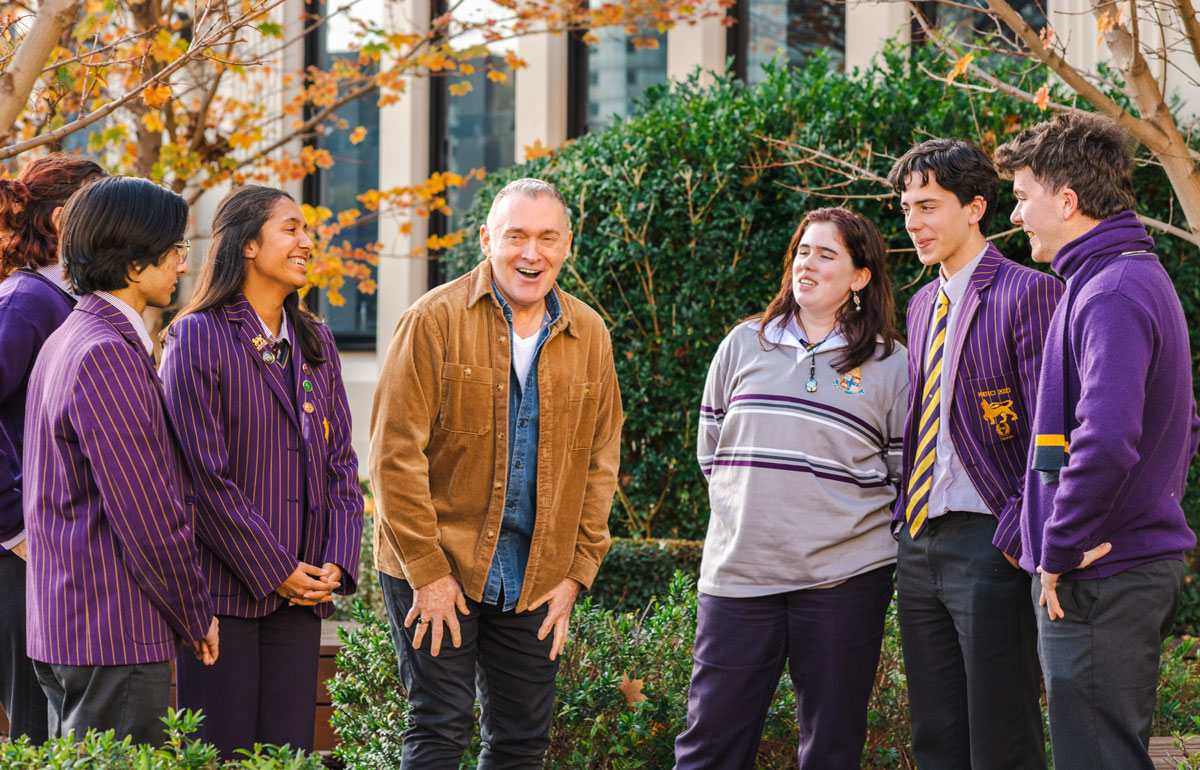
That’s just one of the many critical, myth-busting, safety-focused facts that drug and alcohol educator Paul Dillon shared with our Year 10, 11 and 12 students, teachers and more than 400 parents over two days of seminars held at the end of last term.
With thirty years’ experience in drug and alcohol education for young people, Paul knows what he’s talking about. His mission is to deliver good quality information and best practice drug and alcohol education in a meaningful and accessible way.
The hold Paul has on the students in the audience is particularly remarkable. He enters their world with a mix of sometimes horrifying, sometimes hilarious, real-life anecdotes and provides authentic, hands-on advice about how students and their friends can stay safe.
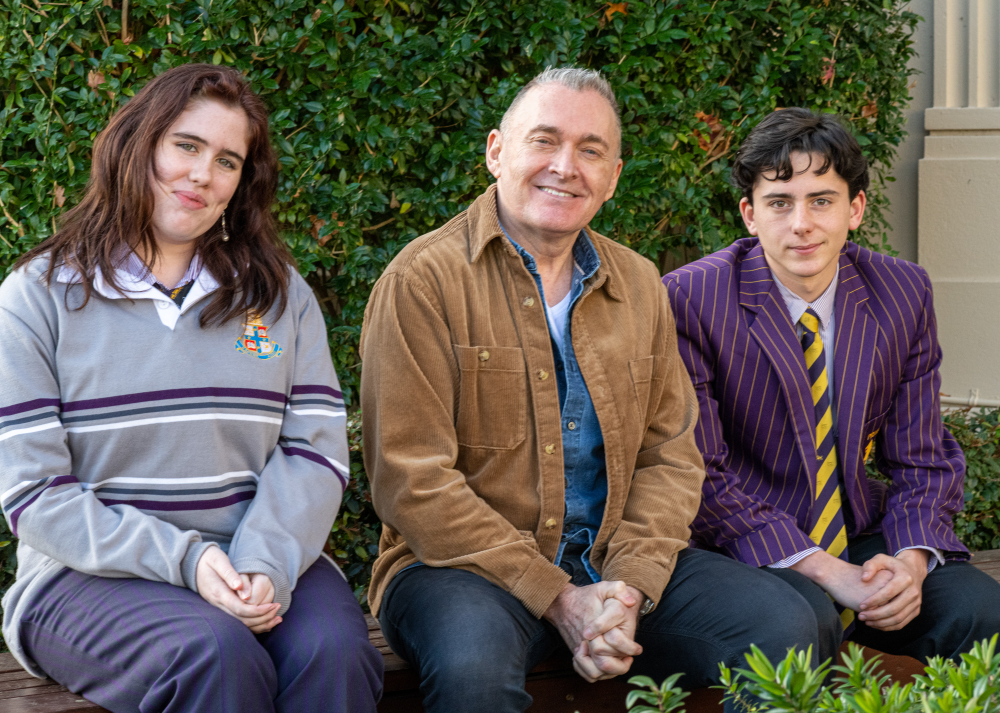
Our Year 10, 11 and 12 cohorts hung onto his every word across their 90-minute sessions.
‘It was not an encouragement to do drugs or drink alcohol, but rather, a testament to the pros of planning ahead, taking care of your friends and understanding the risks of your actions,’
said Olivia (Year 12).
Wesley recognises that student wellbeing is an individual, collective and community responsibility, and that wellbeing does not stop when our young people step outside the classroom. Our educators’ partner with our Wesley families and we never lose sight of the critical role we share in developing the hearts and minds of our young people.
Paul Dillon exercises the same philosophy and approach. He will only present to a student body if he can also address the parent community and their teaching staff as well.
‘Safe socialising’ is an integral part of Wesley’s wellbeing program and is sequenced for upper Middle School and Senior School students to be curriculum aligned and age appropriate,’ said Head of St Kilda Road Campus, Kim Bence. ‘Paul Dillon is an expert on drugs, alcohol and vaping related behaviours in Australia. Wesley had been waitlisted to secure his services and were so lucky to be able to get into his calendar this year.’
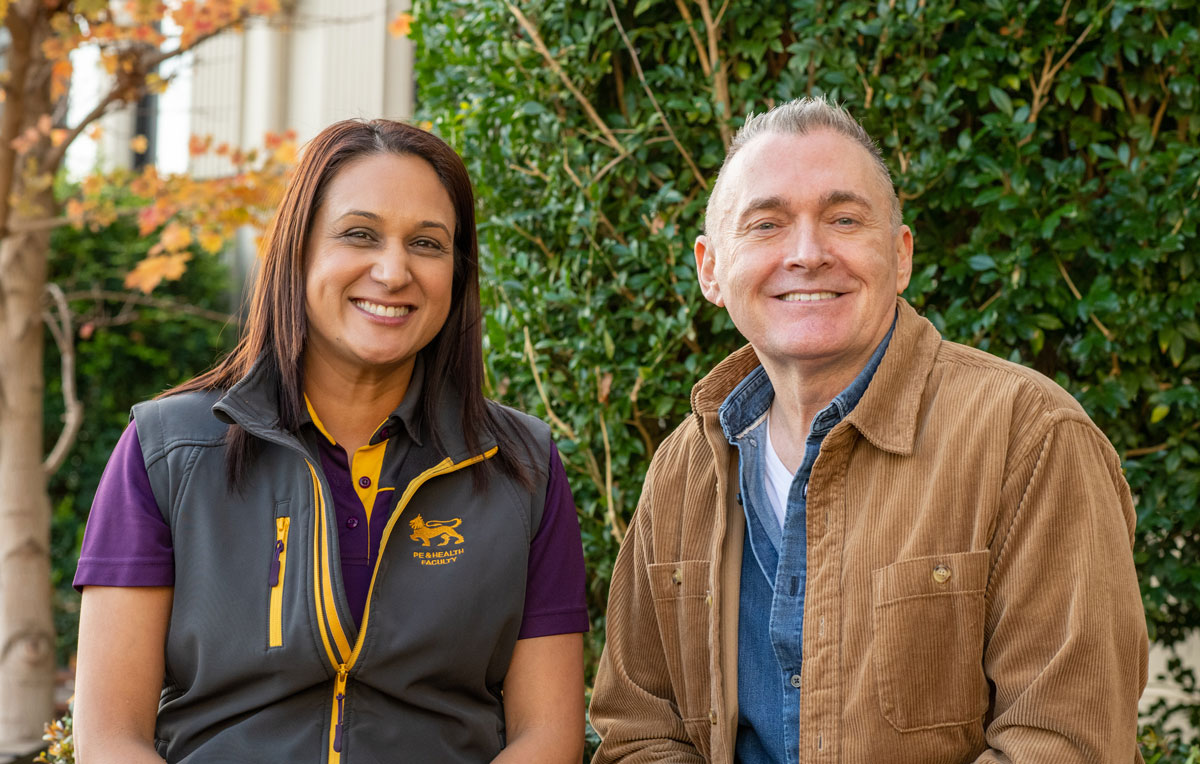
‘As educators, sessions like this are extremely valuable as they provide an insight into what behaviours our young people are being exposed to and partaking in. This allows us to build stronger and more relevant teaching programs which will lead to students becoming better informed and hopefully, making better decisions,’ remarked Sarah Chadha, Head of Physical Education and Personal Development.
‘Teachers have the toughest job in the world,’ said Paul, ‘but it’s not their job to keep kids safe on a Saturday night. All they can do is be available, be supportive and raise the issue if they are concerned. No other job can change a person’s life as much just by caring.’
Drug and alcohol use among our teens
‘There are two key factors which influence drug and alcohol use among young people,’ said Paul, ‘money and access.’
He recently asked a group of teenagers how hard it was to get vapes. ‘They pulled out their phones, put a message on Snapchat and within seconds, were flooded with multiple offers that could be delivered to them within the hour! It really is a very different world to the one we grew up in,’ he said.
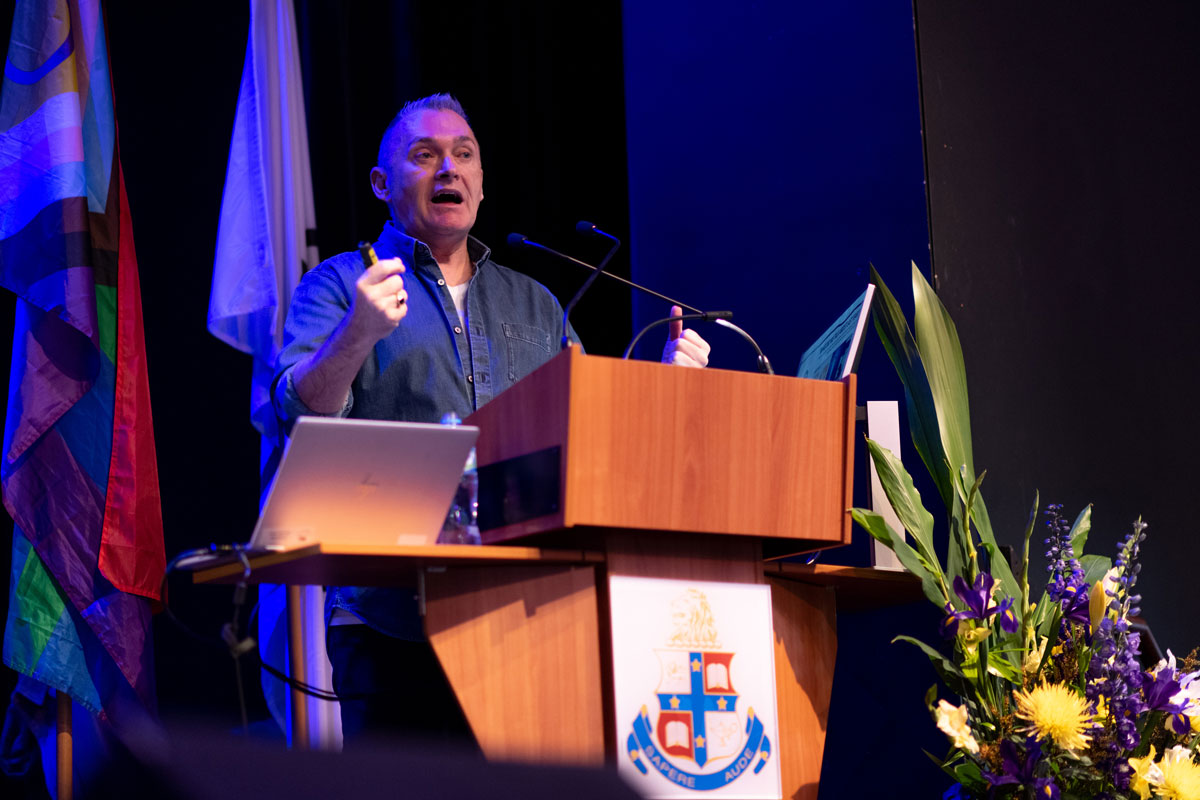
Vaping is a huge problem in schools across Australia right now, with children as young as 10 being caught using them at school. That doesn’t mean older kids aren’t using them too… they’re just less likely to get caught! While Paul admitted we don’t really know enough about vaping yet to fully discuss its long-term impact on health, the number of kids seeking help is growing, which already says a lot!
Dillon explained that the majority of disposable vapes in Australia contain nicotine and that the possession, use or selling of vapes or e-cigarettes containing nicotine is actually illegal in Victoria, unless prescribed by a doctor. The deliberate mislabelling of packaging – often by overseas manufacturers – is common, which is why it is so easy for underage buyers to gain access.
Parents tend to worry most about their children accessing illicit drugs, but in fact, the greatest risk comes from prescription pharmaceuticals, particularly if combined with alcohol.
‘There are trends in drug use, just like in anything else, so we can’t expect parents to keep up-to-date and know everything that’s happening on the streets,’ he said. ‘But there’s one thing that parents should always know: Where your child is, who they are with and when they will be home.’
Wellbeing at Wesley
Wesley’s ROAR approach to learning and wellbeing (Respect, Opportunity, Achievement, Resilience) is built into everything we do and across all aspects of the Wesley experience. It is embedded in our curriculum and delivered through programs and interventions like this one to meet the needs of our students and families and develop the professional learning experience of our staff.
Every member of the Wesley community is responsible for developing their own wellbeing and contributing meaningfully to the wellbeing of others. When we experience higher levels of wellbeing, we live our lives with a greater sense of connection and a deeper sense of meaning and purpose. I could not think of a better recipe for building a safe, respectful and inclusive learning culture that allows individuals to truly thrive.
We asked parents, students and teachers to share their thoughts following their session:
Amelia, Mother of Jack (Year 10) and Harry (Year 8)
‘Paul gave an extremely engaging, and at times comedic, presentation on what, for many of us, is new territory. He was light-hearted, but also matter of fact, and presented us with some surprising and thought-provoking information. We came out feeling equipped with some relevant points to discuss with our children about partying, alcohol and vaping.’
Martin, Father of Catie (Year 7)
‘The session with Paul was great as it provided lots of information that we might not be able to access on our own. What struck me the most was the information he shared about parents allowing their underage children to have a couple of drinks, thinking this was a safe way to introduce them to alcohol. In reality, studies show that these kids are more likely to binge drink and often experience more harm in the long run than those who wait until they’re legally allowed to drink. Another good message was to set rules early and don’t change them because once you do, there’s no going back, as you’ve already shown you’re willing to bend the rules. He gave us a lot to think about.’
THOMAS, YEAR 10
‘Paul Dillon showed us, through his incredible communication skills and humorous nature, how we can be better, safer young people. I now feel more comfortable and better equipped to maintain my own safety and the safety of others, whether this be through remembering ‘water time’, ‘a fist full of food’ or just making sure that I plan ahead. I’m sure practising the strategies outlined in the session will now be the Wesley student standard, as well as knowing that it’s okay, and sometimes vital, to ask for help.’
SIERRA, YEAR 10
‘During the session, Paul said, “I’m here to keep you a little bit safer, not tell you what to do.” That really resonated with me because adults usually place a hard ‘NO’ on the use of drugs and alcohol rather than saying, “If you do drink, be safe.” Paul explained that the likelihood of us trying drugs and/or alcohol was high, but that we could still be safe by avoiding unsupervised and unsafe environments, for example, with strangers or at large events and parties where there are no adults. He also explained why it’s not a good idea to binge-drink or mix alcohol with other drugs.’
HARSHVIR, YEAR 11
‘Paul Dillon’s seminar provided a lot of interesting and important information about drug and alcohol consumption. What really resonated with me was when he said he wanted us to have a good time, but to do it safely. I also learnt that the male brain does not fully develop until age 25 and that drinking can affect its development, which I think is something important to consider as we approach the legal age for drinking.’
OLIVIA, YEAR 12
‘This was easily one of the best presentations we have ever had. We were given real, quantitative, and qualitative information. Paul encouraged us truthfully and genuinely to make our own decisions, and it was the most adult I have ever felt.’
ETHAN, YEAR 12
‘Paul’s talk was based on real-world experiences, so it was easy to connect with what he was saying. It didn’t feel like he was lecturing us but rather, providing advice on how to have fun while being safe. I thought the information and tips he gave on how long to wait before driving after you have had a night out was beneficial as many of us are starting to drive more often. Overall, I thought the talk was very useful as we move into adulthood.’
James Butterfield, Head of House and Teacher
‘In my role as a Head of House in the Senior School, I know the importance of opening up opportunities for conversations about drugs and alcohol with our young people at the time they are encountering them. Three aspects of Paul Dillon’s talks struck me, as critical to the way that we, as educators and care givers, can guide those in our care. First, students need to know that in talking about drugs and alcohol, we have their best interests at heart. Second, we need to treat our audience with respect, acknowledge their own individual experiences and communicate in an open and inquiring, rather than condescending and didactic, manner. Thirdly, we need to ensure that the information we provide is explicitly evidence-based. Paul’s presentations did all of these things, providing a solid foundation for meaningful and powerful discussions both at school and at home.’
Sarah Chadha, Head of Physical Education & Personal Development
‘Our students need to know that they are not judged for their views or behaviours. Our job is to educate and empower them to make better choices in their lives. Through our teaching programs, we will ensure that students are provided with the latest facts and resources, including coping strategies and programs so they can access help if they need it.’
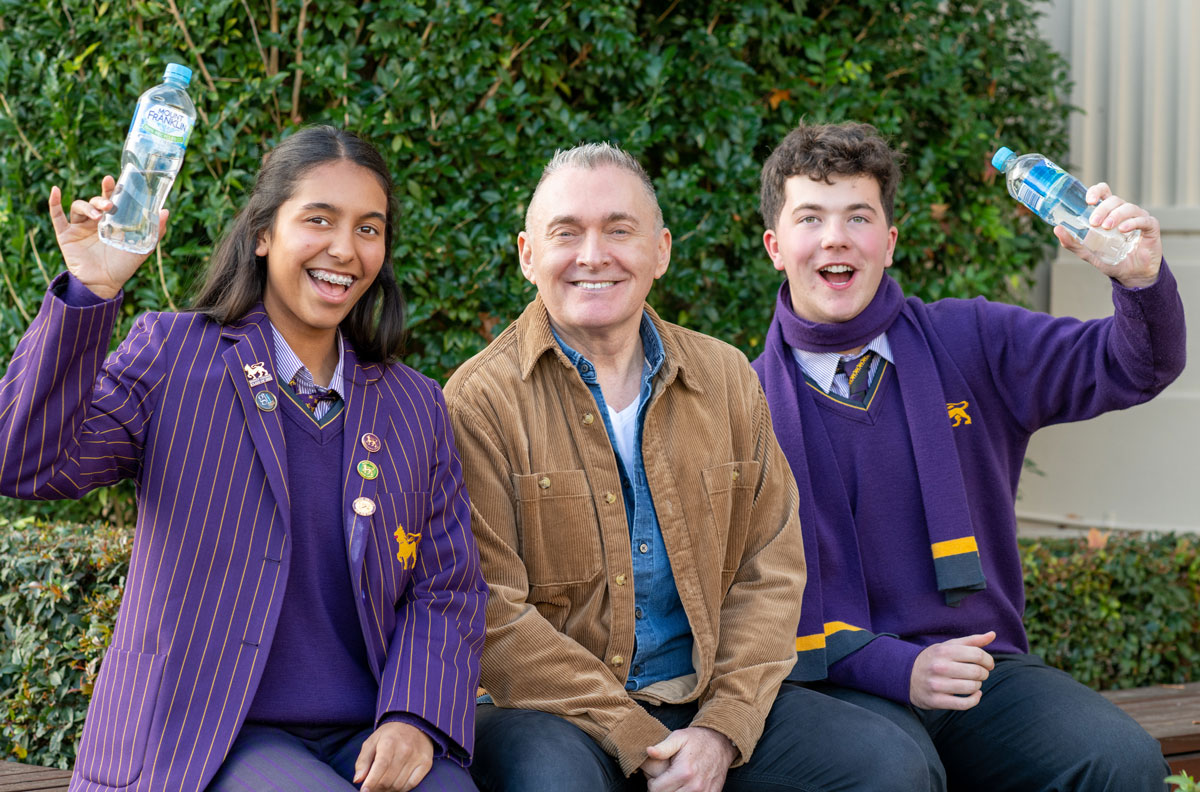
‘It's water time!’
‘It’s water time!’ was a phrase that popped up countless times during Paul’s presentations, showing that students really were paying attention to what he said! It’s a reference to one of Paul’s recommendations that one person in a friendship group acts as the ‘water person’ on a night out; they don’t consume alcohol and call out ‘it’s water time’ to remind the rest of the group to drink water before their first alcoholic drink and in between every other drink throughout the course of the night to ensure everyone stays hydrated.
Want to know more?
Through his business, Drug and Alcohol Research and Training Australia (DARTA), Paul works with organisations and communities across the country to provide regular updates on current drug trends. In 2009, he released a best-selling book for parents titled, Teenagers, Alcohol and Drugs. He also regularly appears in the media and writes a blog where he discusses topical issues of the day, and answers some of the questions raised at his presentations.
For a range of fact sheets and tips for talking to your children about drugs and alcohol, visit https://darta.net.au. To stay up-to-date with the latest news and advice, follow Paul on: FB: https://www.facebook.com/darta.net.au/ INSTA @dillonpauldarta
